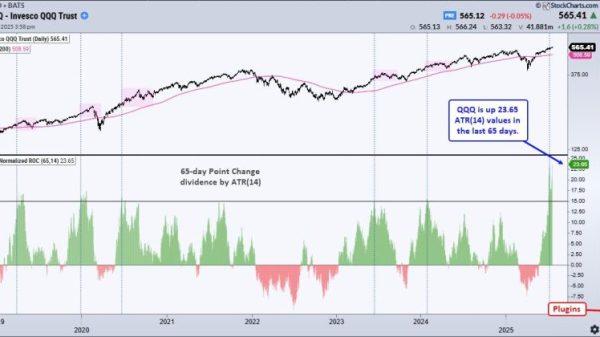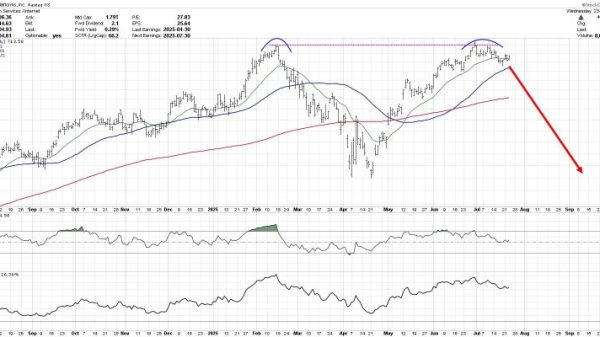Quantum computing is an emerging technology that has the potential to revolutionize many industries.
According to Statista, the quantum computing market’s total revenue is projected to reach US$8.6 billion by 2027. To put that into perspective, the industry was worth only US$412 million in 2020.
What is quantum computing?
Quantum computing is a form of computing that harnesses the principles of quantum mechanics to perform calculations at an atomic or subatomic level. Unlike traditional computing, which is based on binary digits, or bits, which can be either a 0 or a 1, quantum computing is based on qubits, which can represent much more information than bits can. Qubits can be both a 0 and a 1 simultaneously, which allows quantum computers to calculate larger datasets much faster than traditional computers. Quantum computers can also explore several possible solutions at once.
This gives them a distinct advantage in solving problems related to optimization, cryptography, machine learning and financial modeling. Quantum computers also have promising applications in chemistry and material science. For example, quantum computing can simulate how a chemical compound might react in various scenarios.
How does quantum computing work?
Quantum computing is based on the principles of superposition and entanglement. In quantum mechanics, superposition describes the ability of a system to remain in multiple states at the same time until it is measured. Measurement in this context refers to any interaction between qubits and an external system, such as a detector or sensor, that would cause the qubits to collapse from multiple states to a single state.
To understand the concept of superposition it’s useful to imagine a coin spinning on its edge. When a coin is spinning, it is said to be in a state of superposition, meaning it is not defined as either heads or tails. However, if the coin is bumped or disturbed in any way, it will stop spinning and will end up displaying either heads or tails. In this analogy, the coin would be the qubits and the measurement would be whatever caused the coin to stop spinning. Qubits are sensitive to interference from their environment and are usually stored at very low temperatures in computing devices to protect them from influences such as temperature fluctuations, electromagnetic fields and other particles.
For its part, entanglement describes a deep connection between two qubits, where the state of one qubit is directly dependent on the other qubit, no matter the distance between the two.
There are two key properties of entanglement that all applications derived from it depend on. The first one, the Monogamy of Entanglement, states that entanglement between two qubits cannot be shared with a third. The second property of entanglement is called Maximal Coordination — it posits that the quantum state of a system is a combination of all the possible states that the system could be in, and that each state is measured by its probability. Maximal Coordination is an important feature of quantum mechanics that sets it apart from classical physics, and is what allows quantum computer systems to exhibit superposition and entanglement.
What companies are leading in quantum computing?
IBM (NYSE:IBM) has by far one of the largest and most diverse portfolios of quantum computing services and products. Its Quantum Computing Division offers over 100 qubit devices, and the company has a large quantum data center in New York. In 2024, IBM will bring quantum resources to Europe with the completion of its data center in Ehningen, Germany.
IBM is also known for developing the first commercially available quantum computer, IBM Quantum System One, in January 2019. In December 2023, the company announced the development of a newer model, IBM Quantum System Two, which is powered by three Heron chips, each one containing 133 qubits. Quantum System Two is designed to be modular and scalable to accommodate any future advancements made in quantum computing.
IBM also offers a software development kit called Qiskit, which is an open-source suite of software products that programmers can use to design their own algorithms and run simulations on classic computers before being executed on quantum computers. Qiskit is based on the Python programming language, making it accessible to anyone interested in learning. The newest version, Qiskit 1.0, is set to be released in February 2024.
In addition to these developments, IBM has several ambitious projects in quantum computing on its roadmap, and the company has an online platform, the Quantum Network, that gives users access to its cloud-based quantum computing services. In April 2023, EY Global Services joined the network to streamline and enhance its research capabilities.
Google (NASDAQ:GOOGL) is another big name in tech that’s engaged in quantum computing. Its Quantum AI has been working to develop processors and algorithms since 2014, and claims to have been the first to achieve quantum supremacy with its quantum computer in 2019. The company’s open-source framework, Cirq, allows users to write, manipulate, optimize and run quantum circuits on computers and simulators built for quantum computing.
Microsoft (NASDAQ:MSFT) has also made strides in quantum computing. Azure Quantum, a component of the company’s cloud-computing service, Azure, offers resources for users who want to learn more about quantum computing, including a development kit that can be used to custom-build quantum applications. Its chatbot, a quantum-focused version of Copilot, Microsoft’s AI-powered coding assistant, can explain unfamiliar concepts and help users navigate the world of quantum computing more easily.
The company has also been heavily researching ways to build a scaled quantum supercomputer. In May 2023, Microsoft researchers achieved a significant milestone when they successfully created a new type of qubit that can make quantum computers more error-resistant and stable. This represents a huge breakthrough in quantum computing and physics, and Microsoft’s journey to this achievement was detailed in the June 2023 issue of Physical Review B.
As eager as the major tech companies are to advance the field of quantum computing, they are not alone. Several smaller startups have emerged throughout Europe, North America and Australia, including Q-Ctrl, Multiverse Computing, Universal Quantum, 1QBit and QC Ware, all of which are striving toward accessible quantum computing solutions.
In more recent news, on January 16, JP Morgan (NYSE:JPM) led a group of investors in a US$300 million funding round for Quantinuum, a spinout of Honeywell International (NASDAQ:HON) that focuses on advancing the field. The investment firm has been a longstanding supporter of the computing business, working with the company since 2020. Quantinuum was formed through a merger of Honeywell Quantum Solutions and Cambridge Quantum in November 2021.
JPMorgan may be hoping to reap the benefits that quantum computing offers the financial industry. A recent Bank Underground blog post highlights the “high-level changes” coming to payment systems, including the enabling of more efficient payment systems and smart contracts.
What is quantum computing used for?
Quantum computing has the potential to impact a wide range of industries, including finance, pharmaceuticals and logistics. For example, quantum computers could optimize stock portfolios, develop new drugs more quickly or improve supply chain management.
Quantum computing has also been applied to developing machine-learning algorithms, a realm that is still in relatively early stages of development and is brimming with potential for groundbreaking advancements. Two quantum algorithms that have already contributed greatly to the field of machine learning are Grover’s Algorithm, which can yield unstructured search results faster and improve pattern recognition in machines; and the Quantum Fourier Transform algorithm, which has properties that make it instrumental for understanding temporal dynamics, giving it a distinct edge for applications such as market trend analysis, weather forecasting and language recognition.
Quantum computing, together with artificial intelligence, will undoubtedly catalyze the development of solutions to some of the world’s most complex problems. However, like many emerging technologies, the unique properties that make quantum computing such a promising field also present challenges and risks. Some experts have pointed out that quantum computers have the potential to break most encryption techniques that are currently used for cybersecurity. As quantum computers become more powerful, encryption techniques will need to be replaced with newer quantum-resistant alternatives. Staying one step ahead of the ever-evolving landscape of cybersecurity threats will be crucial.
In response to these threat to cybersecurity, the Biden administration signed the Quantum Computing and Cybersecurity Preparedness Act into law in 2022. It requires federal agencies to adopt adequate defenses against quantum-computing-enabled attacks and migrate systems to post-quantum cryptography.
Investor takeaway
As quantum computing continues to advance, investors considering getting exposure to this emerging technology will be able to choose between companies that are actively researching and developing quantum computing technology, as well as companies that are positioned to benefit from the adoption of quantum computing in their industries.
Securities Disclosure: I, Meagen Seatter, hold no direct investment interest in any company mentioned in this article.




























